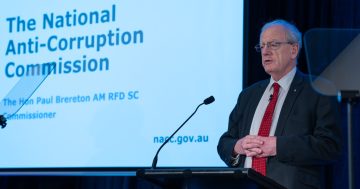
Public service agencies must now cooperate more fully with Tax Ombudsman investigations, by law. Photo: File.
Federal Parliament has granted the Tax Ombudsman greater powers to investigate public sector records, in order to avoid a repeat of Robodebt and in response to the royal commission into the illegal scheme.
The Ombudsman Act 1976 and Inspector-General of Taxation Act 2003 were amended to implement two recommendations of the Report of the Royal Commission into the Robodebt Scheme.
These are imposing a statutory duty on agency heads and their staff to assist the Commonwealth Ombudsman and the Inspector-General of Taxation and Taxation Ombudsman (IGTO) in the performance of their functions, and expanding the powers of the Ombudsman and IGTO to access agency records.
The Ombudsman Act was additionally amended to enable the Ombudsman and IGTO to access documents and other records by remote means, and make technical and contingent amendments.
The Inspector-General of Intelligence and Security Act 1986 was also amended to clarify that the Inspector-General of Security and Intelligence is entitled to “reasonable facilities and assistance” when making preliminary inquiries of the head of an intelligence agency.
The IGTO has welcomed the government’s decision to give Ombudsman Ruth Owen new powers in response to the Robodebt Royal Commission.
The bill was passed on Wednesday (12 February) and directly addresses two critical failings of oversight by creating a duty for the ATO to assist with investigations by the Inspector-General, and allowing her access to Tax Office records, data and information directly when required.
“This decision is a clear signal to taxpayers that we have strong checks and balances within the tax system in Australia,” Ms Owen, Inspector-General of Taxation and Tax Ombudsman, said.
“When something goes wrong, my agency can investigate independently and get to the bottom of problems quickly, fairly and without fear or favour.
“The Tax Commissioner and I signed a joint protocol at the end of last year that sets out how the ATO and my office work together and most of the time this cooperative approach works very well, but Robodebt showed us all what happens when this type of arrangement breaks down.”
All staff within the ATO and Taxation Practitioners Board (TPB) now have a duty to cooperate with the Inspector-General at every stage of an investigation, from initial inquiries through to the publication of findings and follow-ups on recommendations made.
Delaying or obstructing an investigation, withholding relevant information or providing the wrong information are all now breaches of the Public Service Code of Conduct, and form grounds for misconduct and possible disciplinary action.
The development also gives the Inspector-General powers to access agency records directly rather than relying on the agency to turn them over upon request.
“Investigations are not always straightforward and the evidence we need might be in a format we hadn’t expected or was hard to define in a request for information,” Ms Owen said.
“We try very hard to be clear, but sometimes the one key record we need isn’t made available.
“That could be because it doesn’t exist, which is fair, but it may be that it was just hard to find, or because someone chose not to share it with me.
“This new power means that I can access their records and information directly if I don’t think I’m getting the information I need or expect.
“I don’t expect to use these powers very frequently, but Australian taxpayers have a right to expect that there are consequences for any officials seeking to obstruct an Ombudsman investigation, especially when their money is at stake.
“This bill now spells that out.”
The illegal Robodebt automated debt recovery scheme was piloted in 2015 and fully rolled out between 2016 and 2019 by the Department of Human Services and its successor, Services Australia. More than 470,000 false debts were issued.
It caused extensive grief and trauma. Some recipients are reported to have taken their own lives over the debts. The scheme was officially scrapped in 2020.
Royal Commissioner Catherine Holmes delivered her report into the scheme in July 2023.
An investigation by the Australian Public Service Commission last year found former department secretaries Kathryn Campbell and Renée Leon to have both breached the Public Service Code of Conduct in their handling of Robodebt.
Original Article published by Chris Johnson on Riotact.











